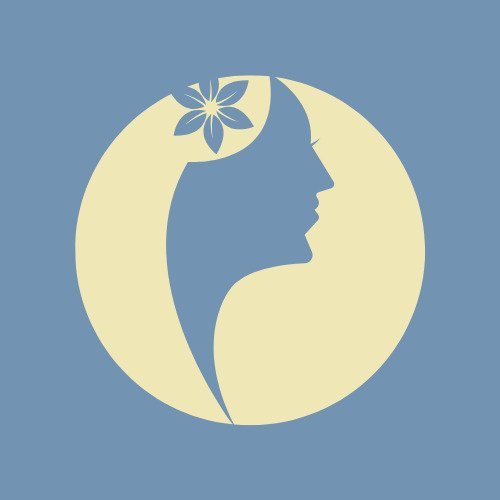Women’s Mental Health
Women experience a variety of different mental health concerns that include anxiety, depression, dysphoria, and trauma/stressor-related disorders. Women experience symptoms differently than men do and are at greater risk for some types of mental health conditions. Women must receive mental health treatment that addresses their unique needs as women.
Women’s Mental Health Overview
Over ⅕ of women in the United States are affected by mental health concerns. The most common conditions they deal with are anxiety, depression, postpartum depression, and premenstrual dysphoric disorder. Postpartum depression and premenstrual dysphoric disorder are unique to women.
Women and Clinical Depression
It is more common for women to express their depression as opposed to men, who tend to internalize their depression. Some ways women express their depression is through feelings of worthlessness, and guilt and by isolating themselves from people. They also experience somatic symptoms such as fatigue, headaches, and gastrointestinal issues.
There are different types of depressive disorders and symptoms that women experience. These include loss of interest in things they usually found interest in, sadness, trouble concentrating, changes in appetite, weight, sleep, and low energy and motivation. Hormones like estrogen can also contribute to the higher prevalence of depression in women.
Pregnancy, menopause, and puberty also tend to increase the risk of depression for women. Often this can contribute to or trigger a sense of midlife crisis. It is very important to know that treatment is available and recovery is very possible.
Women tend to seek out treatment more often than men for depression. Treatment includes counseling/therapy and/or antidepressant medication. In addition to medication and counseling/therapy, self-care is an important part of treatment for depression.
Women and Clinical Anxiety
Women are also more often affected by clinical anxiety than men. They are two times more likely to experience clinical anxiety than men. The types of anxiety disorders they experience include panic disorder, social anxiety, phobias, and generalized anxiety disorder.
Some of the symptoms include excessive uncontrollable worry, trouble with sleep, weight gain or loss, irritability, muscle tension, restlessness, and poor concentration. Some of the causes of anxiety may include life experiences, hormonal changes, genetics, or a combination of all of these things.
Hormones are believed to contribute to the underlying reasons women are more likely to experience clinical anxiety. It tends to occur more often during pregnancy, postpartum, menopause, and serious shifts in hormones. Premenstrual dysphoric disorder can also present with severe anxiety.
There is treatment for clinical anxiety and recovery is possible. Treatment includes medication and/or counseling/therapy. Some alternative and complementary options include lifestyle changes, nutrition, and exercise.
Women and Dysphoria
Dysphoria is experienced as a deep sense of distress, indifference, and unhappiness. It is a symptom, not a diagnosis, usually associated with different mental health conditions. Dysphoria is a very intense sense of unease and dissatisfaction that can feel extremely sad.
Some symptoms of depression are irritability, difficulty concentrating, and anxiety. Often strong feelings of anger, disturbance in sleeping and eating patterns, and lack of interest in activities are experienced. People experiencing dysphoria tend to experience the world with a negative perspective and this makes it more difficult to gain perspective and consider a more realistic outcome for the future.
Dysphoria can occur during a mixed state. Feelings of apathy, irritability, mania, an inflated sense of self, pressured speech, sadness, and racing thoughts. Symptoms are very similar to depression. Dysphoric mania can also present itself and includes both symptoms of mania and depression.
Some things that are attributed to dysphoria include:
Trauma
Negative childhood experiences
Substance use
Withdrawal from substances
Stress
Rumination (focusing on the same thoughts)
Disruptions in circadian rhythm (sleep-wake cycle)
Genetic vulnerability
Changes in neurotransmitters such as dopamine, which can cause shifts in mood (https://www.verywellhealth.com/dysphoric-mood-warning-signs-and-how-to-cope-5205365#:~:text=Summary,anger%2C%20guilt%2C%20or%20failure.)
The kind of treatment for dysphoria depends on the cause of it. Some treatments include antidepressants, mood stabilizers, and other medications. Counseling/therapy is an important part of treatment for people experiencing dysphoria.
Women and Trauma and Stressors
Traumatic events include being a victim of crime, experiencing physical, sexual, or emotional abuse, natural disasters, war combat, and other such events. Experiencing these kinds of events can often lead to post-traumatic stress disorder (PTSD). Some symptoms of PTSD include hypervigilance, flashbacks, nightmares, negative feelings or thoughts, and avoiding anything that is a reminder of the traumatic event.
One in ten women will experience a traumatic event that leads to developing PTSD. PTSD is twice as common in women than in men. Women also experience different kinds of symptoms.
Women experience their PTSD symptoms more as anxiety, depression, emotional numbness, hypervigilance, and avoiding any reminders of the traumatic event. They also have physical health issues. Women also tend to use alcohol and drugs as a way to deal with their trauma.
Women also tend to wait longer than men to seek treatment for their trauma. They usually wait about four years before seeking help and getting a proper diagnosis. Treatment for PTSD usually includes medication and counseling/therapy.
References

